
Everything you need to know about using a defibrillator
In a huge step for first aid in the UK, more than 20,000 defibrillators – which are devices that give an electric shock to the heart of a person who is in cardiac arrest – have been delivered to state schools across the country since January. Cardiac arrest can affect anyone, of any age, but according to St John Ambulance research, when a defibrillator is used within the first three minutes of a cardiac arrest, the chances of survival increase by up to 70%. Knowing how a defibrillator works could save someone’s life, but what should you know before using one? What is a defibrillator? “A defibrillator is an electrical device that provides a shot across the heart to help bring people out of cardiac arrest,” explains James McNulty-Ackroyd, head of clinical projects and paramedic at St John Ambulance. They are often labelled as an AED which is “an automated external defibrillator, and it recognises when using one would be beneficial for the patient. When we talk about cardiac arrests, we talk about shockable and non-shockable, and an AED is useful when the heart is in particular shockable rhythms”, he says. When used, the electrical shock stuns the heart to send it back to its normal function “from the right shoulder down to the left armpit”. The AED knows when it should work after the pads have been applied, because it “recognises the rhythm like an ECG automatically, and it will not shock if the heart is not in one of the relevant rhythms”. When should you use one? You only need a defibrillator in an incident of cardiac arrest. “They should only be used when the patient is not breathing normally, or the heart has stopped,” explains McNulty-Ackroyd. “Their breathing may be like a fish out of water, there is no rhythm to it, there is no real air entry, or non-purposeful gasping. “The heart is not pumping in that situation – it is not working, but there is some movement. They need a defibrillator and high-quality CPR (cardiopulmonary resuscitation).” What should you be wary of? The good news is, there’s not much to worry about when using one. “Ideally, you should not have anyone touching the patient when you press the big red button, but there are lots of different devices on the market and most have written and audible instructions, and tell you what to do, so it will say to stand clear and tell you what to press and when,” he explains. You need to take or cut the person’s shirt off, though. “There is quite a lot of disinformation about taking someone’s bra off. If you do not take their bra off, you cannot get the pads in the right place. Cut down the middle of the bra, and let it fall open.” What do you actually do? So, you have seen someone go into cardiac arrest or found someone who has collapsed. What do you do? “If you find someone who you think is in cardiac arrest, start CPR, shout for someone to bring you a defibrillator, and ask them to call for help,” advises McNulty-Ackroyd. “The first thing the ambulance service will ask is, ‘Are they breathing?’ They will ask if they’re awake and you will say ‘no’, as they are in cardiac arrest. “An ambulance will be sent as the highest priority in that area. In the meantime, you should be using an AED and performing CPR. “When you ring 999, they will tell you how to do CPR. Do not worry about hurting someone you are doing CPR on. That person is dead, they cannot feel pain, if they sit up and go ouch, they are not in cardiac arrest.” When using the defibrillator, “the first pad goes on the upper right, touching the clavicle [bone of the pectoral arch], and the other into the left armpit, nice and high”, he explains. Every minute you don’t shock that abnormal rhythm, the person loses a chance of life, so use a defibrillator and perform CPR if you are in any way worried about someone who has collapsed. Read More Charity boss speaks out over ‘traumatic’ encounter with royal aide Ukraine war’s heaviest fight rages in east - follow live What you need to know about the massive LVMH deal with the Paris Olympics Bisexual people ‘experience worse health than other adults’ What’s the coolest bedding to survive summer heat and night sweats?
2023-07-25 20:54
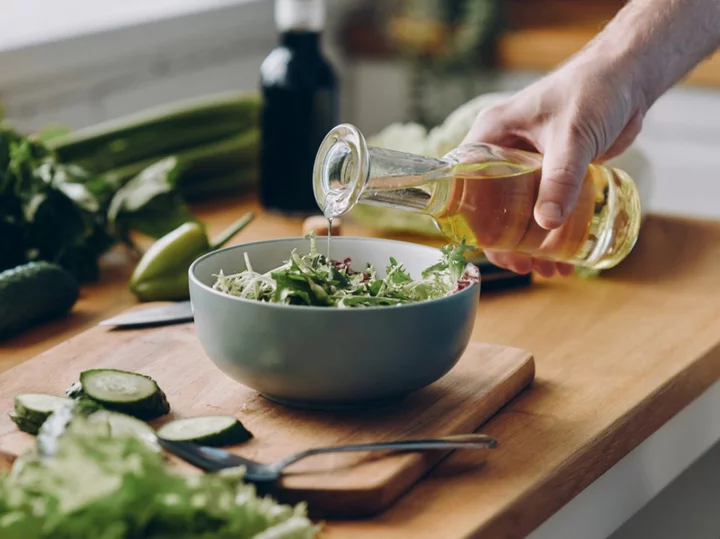
Scientists share the 8 habits that impact your lifespan the most
Scientists have identified eight unhealthy lifestyle choices which, if changed, could see people live more than 20 years longer. Lack of exercise, opioid use and smoking have the biggest negative impact on lifespan and can lead to a 30-45 per cent higher risk of death, according to the study. Stress, binge drinking, poor diet, and poor sleep hygiene were each associated with around a 20 per cent increase in the risk of death. And a lack of positive social relationships was the eighth habit mentioned and is associated with a 5 per cent increased risk of dying. Meanwhile, a separate study suggests incorporating olive oil into your diet could help reduce the risk of dying from dementia. Consuming more than half a tablespoon of olive oil per day is linked to a 28 per cent lower risk of dying from the condition, compared with those who never or rarely eat the oil, researchers say. The findings from both studies were presented at Nutrition 2023, the annual meeting of the American Society for Nutrition being held in Boston, and may include more up-to-date figures than the data initially submitted for the meeting. The research that looked at lifestyle habits used data from medical records and questionnaires collected between 2011-2019 from 719,147 people enrolled in the Veterans Affairs Million Veteran Program. It found that men who have all eight healthy habits - including high physical activity and not smoking - at age 40 would be predicted to live an average of 24 years longer than men with none of these habits, and for women an additional 21 years. Xuan-Mai Nguyen, health science specialist at the Department of Veterans Affairs and rising fourth-year medical student at Carle Illinois College of Medicine, USA, said: “We were really surprised by just how much could be gained with the adoption of one, two, three, or all eight lifestyle factors. “Our research findings suggest that adopting a healthy lifestyle is important for both public health and personal wellness. “The earlier the better, but even if you only make a small change in your 40s, 50s, or 60s, it still is beneficial.” The researchers say their findings, which have not been peer-reviewed, highlight the role of lifestyle factors in contributing to chronic diseases such as type 2 diabetes and heart disease that lead to premature disability and death. In the olive oil study, scientists analysed dietary questionnaires and death records collected from more than 90,000 Americans over three decades, during which 4,749 people died from dementia. It also found that replacing just one teaspoon of margarine and mayonnaise with the equivalent amount of olive oil per day was associated with around an eight to 14 per cent lower risk of dying from dementia. Anne-Julie Tessier, a postdoctoral fellow at the Harvard TH Chan School of Public Health in the USA, said: “Our study reinforces dietary guidelines recommending vegetable oils such as olive oil and suggests that these recommendations not only support heart health but potentially brain health, as well. “Opting for olive oil, a natural product, instead of fats such as margarine and commercial mayonnaise is a safe choice and may reduce the risk of fatal dementia.” Research suggests that people who regularly use olive oil instead of processed or animal fats tend to have healthier diets overall. However, Dr Tessier noted that the relationship between olive oil and the risk of dying from dementia in this study was independent of overall diet quality. She added that the research is observational and does not prove olive oil is the cause of the reduced risk of fatal dementia. However, Professor David Curtis, UCL, said it was difficult to assess whether the research adds much to the understanding of links between diet, health and dementia risk, as it has not been peer-reviewed. He added: “There are many, many differences between people who consume olive oil and those who do not and it is never possible to fully account for all possible confounding factors. “Another point to bear in mind is that about half of dementia is caused by vascular disease so that anything which improved cardiovascular health, such as not smoking, would be expected to reduce dementia risk. “It has been shown that olive oil consumption is associated with better cardiovascular health so one would expect that it would also be associated with lower dementia risk.” Dr Duane Mellor, registered dietitian and senior lecturer at Aston University, said: “The authors claim replacing margarine and mayonnaise with olive oil could reduce risk. “However, many people who did this would also change the food that it is being added to, which could increase vegetable, lentils, beans, peas, seeds and nut intake – all of which are linked to a healthy diet and reduced risk of conditions like dementia. “We also need to remember that it is not just what we eat that helps maintain our brain function, it is how we eat – and remaining sociable around meal times and eating with others can benefit our mental health in the short term and cognitive function as we age.” Read More The bowel cancer symptom George Alagiah wished he’d caught earlier Experts share 8 healthy habits to help you live longer Husband fired from family business after wife roleplayed with reborn dolls Cara Delevingne says her journey to sobriety has been worth ‘every second/ Bisexual people ‘experience worse health than other adults’ The bowel cancer symptom George Alagiah wished he’d caught earlier
2023-07-25 18:50
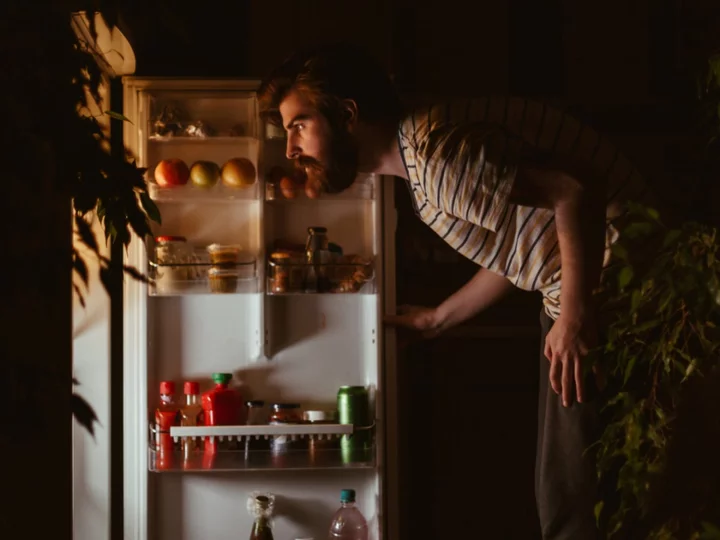
Late night snacking could increase risk of diabetes and heart disease, study says
Eating a snack late at night carries significantly more negative health implications compared to snacking during the day, a new study has found. According to researchers at King’s College London, people who eat most of their snacks in the evening after 9pm saw larger spikes in their blood sugar compared to those snacked earlier in the day. The group who snacked later also had higher concentrations of fat in their blood compared to those who snacked earlier. The researchers studied data from 1,000 people who took part in the Zoe Predict study. The participants kept a food diary and wore blood sugar monitors in order to keep track of the impact of snacking. On average, they ate two snacks a day, with one in three “late evening snackers” eating most of their snacks after 9pm instead of between meals. High blood sugar and fat can lead to diabetes and heart disease, studies have found. People with diabetes are also more likely to have other conditions that raise the risk of heart disease, such as high blood pressure. The Zoe Predict project is a group of in-depth nutritional research studies that aim to reveal how and why people respond differently to the same foods. Kate Bermingham, a postdoctoral fellow at King’s College London and lead author of the study, said: “Surprisingly little has been published on snacking, despite the fact that it accounts for 20 to 25 per cent of energy intake. “Predict followed a large number of people and captured detailed information on their snacking behaviours, allowing this in-depth exploration of snacking on health.” Researchers analysed the relationship between the number of snacks participants ate, the quality of the snacks and the timing with blood fats and insulin levels. Snacking on higher quality foods, which are described as foods that contain significant amounts of nutrients relative to the calories contained, was associated with better bodily responses. The study concluded that the most important factor in determining the body’s response is the quality of snacks, not how often or how much they are consumed. Foods like fruit or vegetables resulted in a better blood fat and insulin response compared to processed foods, such as biscuits and cake. Bermingham added: “Our study showed that the quality of snacking is more important than the quantity or frequency of snacking, thus choosing high quality snacks over the highly processed snacks is likely beneficial. “Timing is also important, with late night snacking being unfavourable for health. This may mean that, universally, snacking late in the evening and interrupting the overnight fasting window is detrimental to health.” The study was presented at a meeting of the American Society for Nutrition. Read More My Taylor Swift exercise class has led me down a luxury fitness rabbit hole Husband fired from family business after wife roleplayed with reborn dolls MrBeast YouTuber Kris Tyson comes out as transgender: ‘I’m excited to authentically be myself’ Scientists share the 8 habits that impact your lifespan the most Cara Delevingne says her journey to sobriety has been worth ‘every second/ Bisexual people ‘experience worse health than other adults’
2023-07-25 18:50

Bisexual people ‘experience worse health than other adults’
Bisexual people experience worse health outcomes than other adults in England, a study has found. Data from lesbian, gay or bisexual (LGB) patients indicates these groups have poorer health outcomes compared to those who identify as heterosexual. The new findings indicate that bisexual people face additional health disparities within an already marginalised community. Experts from the Brighton and Sussex Medical School, and Anglia Ruskin University who led the analysis of more than 835,000 adults in England, suggest the differences could result from unique prejudice and discrimination that can come from both mainstream society and LGBTQ+ communities. Minority stress could put bisexual individuals at increased risk of psychological problems and negative behaviours – and ultimately at greater risk of poorer health outcomes Professor Carrie Llewellyn Lead author, Professor Carrie Llewellyn, head of the department of primary care & public health at Brighton and Sussex Medical School, said: “Minority stress could put bisexual individuals at increased risk of psychological problems and negative behaviours – and ultimately at greater risk of poorer health outcomes. “Our results suggest that there is a greater prevalence of long-standing physical health conditions amongst people identifying as LGB. “Furthermore, nearly all LGB individuals across all gender responses in the survey felt less confident in managing their own health.” Prof Llewellyn, added: “While it is well-established that persistent health disparities exist among LGB patients, very little is known about the specific experiences of bisexual people. “Our study goes some way to addressing this gap – finding that bisexual people, especially women, have the worst experiences in healthcare and the worst health outcomes of any sexuality.” The researchers used data from 836,312 adults – including 23,834 people who identified as LGB or ‘other’ – from Ipsos MORI’s 2015/16 English General Practice Patient Survey (GPPS). The study compared the health outcomes of people identifying as LGB with heterosexual groups through their self-reported quality of life, physical and mental health, and confidence in managing their own health. It found that long-term physical and mental health problems were more than twice as likely to be reported for people within LGB groups compared to heterosexual groups. However, for bisexual women the odds were more than four times greater. The research further suggests that bisexual women reported to be half as likely to be living without a long-term health condition. LGB groups across the genders felt less confident in managing their own health and experienced significantly worse quality of life compared to heterosexuals, the study published in The Journal of Sex Research, suggests. Prof Llewellyn said: “A better understanding of the different spectrum of health needs across LGBTQ+ subpopulations is required to provide adequate and equitable healthcare services for all. “Modification of healthcare settings to increase perceived accessibility and providing services that better meet these specific health needs are essential.” Read More Charity boss speaks out over ‘traumatic’ encounter with royal aide Ukraine war’s heaviest fight rages in east - follow live Cara Delevingne: Sobriety hasn’t been easy but it has been worth every second What’s the coolest bedding to survive summer heat and night sweats? Harry Judd: I had to learn to be less selfish when I became a father
2023-07-25 16:56

Cara Delevingne: Sobriety hasn’t been easy but it has been worth every second
Cara Delevingne has described herself as “stable and calmer” since embracing sobriety, but noted how challenging the process has been. The model and actress first spoke about her decision to go sober earlier this year, following a series of images that were taken of her at Van Nuys Airport in Los Angeles last year. The 30-year-old told Elle UK that she felt a weight was lifted after speaking about her struggles. She said: “For a long time, I felt like I was hiding a lot from people who looked up to me. I finally feel as though I can be free and myself, fully.” On embracing sobriety, she added: “It hasn’t (been easy), but there have never been moments when I’m like, ‘This isn’t worth it’. “It’s been worth every second. I just don’t know what it would take for me to give it up. I am stable. I’m calmer. “Before, I didn’t trust myself. I second-guessed myself constantly. There was a lot of anxiety involved. Now I just feel free of that.” Delevingne, who found fame as the face of luxury British fashion house Burberry in 2011, spoke about her struggle with the quick ascent to global stardom. She told Elle UK: “It didn’t feel real. I didn’t feel like I deserved it. I didn’t feel worthy. I was still stuck in this mindset of not being good enough. “I was doing the best I could, but I wasn’t really appreciating every moment. Inside, I felt very different to how I looked.” The model also praised her relationship with London musician Leah Mason, better known as her stage name Minke, in the process of becoming more secure. She said: “My girlfriend has been really wonderful in introducing me to a lot of things and people. “Being with my girlfriend, in this relationship, there are just so many things that came at once that have made me so happy and comfortable with who I am.” Delevingne also praised her close friendships within the fashion industry including with Jourdan Dunn and Karlie Kloss who taught her “a lot about living”. Having found fame as a model, Delevingne branched into acting with a minor role in Joe Wright’s 2012 adaptation of Anna Karenina. She later went on to secure leading roles in Paper Towns and Suicide Squad. On trying to live without expectations, she added: “It’s not easy. Like anything, it’s a practice. “I’m just taking it day by day. The projects I’m doing are things I really care about.” The September issue of Elle UK is on sale from July 27. Read More Charity boss speaks out over ‘traumatic’ encounter with royal aide Ukraine war’s heaviest fight rages in east - follow live What’s the coolest bedding to survive summer heat and night sweats? Harry Judd: I had to learn to be less selfish when I became a father How to bring a touch of the Mediterranean to your garden
2023-07-25 16:50
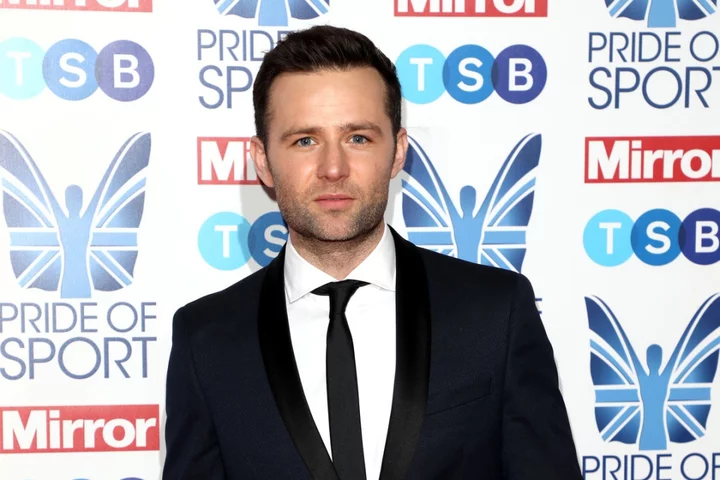
Harry Judd: I had to learn to be less selfish when I became a father
Sex, drugs and rock ‘n’ roll are not necessarily how you would describe McFly these days, as the band venture into fatherhood, settle down, write kids’ books and tour in a far less intense fashion. A lot has changed since their crash onto the music scene in 2003. They’re more chilled-out pals than boy band bad boys now. “Dougie was very excited today, because we figured out a really good post-show cool down,” Harry Judd, McFly’s drummer, says with a laugh. “[It involves] lighting a candle, having a shower, getting into some comfies and then having some healthy food. I can assure you, it is very rock and roll,” Judd, 37, adds. “It’s more sustainable that way – the way we do it – and also ultimately more enjoyable. You feel a lot more fresh, energised and able to do the gigs, because it’s quite a physically demanding job being on tour. “When we first started, we had that unbelievable energy you have with your buddies, but I enjoy it more now. We’re focused.” Changing priorities Judd’s lifestyle has changed in the past 20 years of McFly. “I’ve stopped doing anything I shouldn’t have been doing. I lived a pretty rock and roll lifestyle, so I think I was totally ready [to be a father].” Now, alongside playing with his bandmates, the 2011 Strictly Come Dancing winner is also playing with his children, Lola, seven, Kit, five, and Lockie, who’ll be two in October. All of his kids want to play very differently, and he gets to see them explore in many different ways. “Lola’s really into imaginative play, make-believe, roleplay, and right from an early age, I remember her pretending to play doctors and nurses, mothers and babies. I can tell already that she loves pretending to be a teacher, lining her teddies up and taking a class. “My son, Kit, on the other hand, loves music. I bought his first toy drum kit from Argos last year, but he’s now moved on to guitar, unfortunately. He is a bit more individual with his playing, pretending to be in McFly basically. I can see him going into music.” Despite Kit’s musical interests, his dad is not his favourite member of McFly. “Tom [Fletcher] is his favourite member and that’s something I’ve had to come to terms with,” Judd laughs. Out and about “My kids just finished for the summer holidays, so now I have to do more with them. You feel that guilt as parents, when they’re at school, because there’s no time and my daughter is constantly telling me, ‘Daddy, let’s do this. Let’s do that’. Even just carving out 10 minutes a day of play with your kids is hugely beneficial,” he says. And his time with them is often spent being a big kid. “We get outside… climbing trees and making dances; playing catch and cricket in the garden. [We play] Grandmother’s Footsteps, stuff like that. That, to me, is the most fun and fast way to engage with your kids.” Nurturing his inner child Judd is very aware of his own childishness. “I still can relate to a lot of my inner child now. I’m still very competitive and I’m quite sensitive. There are moments where I always want to be right and I have to try and contain that.” His wife Izzy, he says, knows she is sometimes dealing with a big kid, too. “I feel like she takes on so much. She has three kids. She’s got a man baby for a husband. She’s kind and she’s so caring,” he gushes. “The main thing for me, was to become less selfish. I think that’s one of the hardest things. You’re no longer number one. You can’t just do the things you want to do.” Harry Judd is partnering with Argos on its 50th birthday. Argos is giving away £20,000 worth of toys to mark its five-decade milestone. To find out more click here. Read More Charity boss speaks out over ‘traumatic’ encounter with royal aide Ukraine war’s heaviest fight rages in east - follow live How to bring a touch of the Mediterranean to your garden 6 of the biggest bridesmaid fashion trends to know about Experts share 8 healthy habits to help you live longer
2023-07-25 15:46
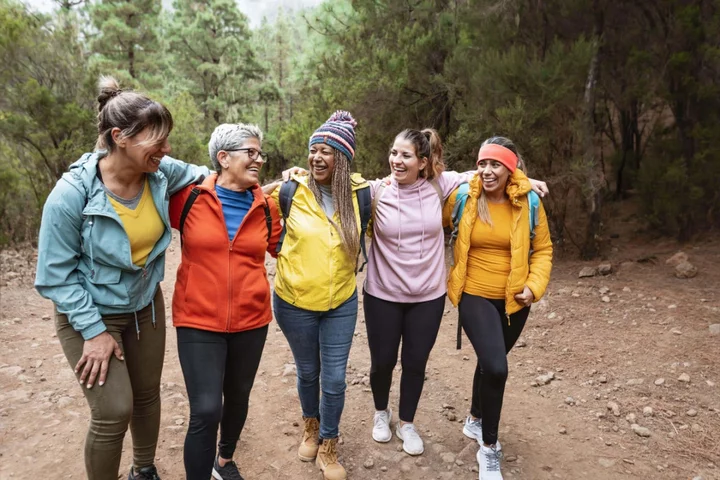
Experts share 8 healthy habits to help you live longer
Eight habits that could help people live more than 20 years longer have been identified by researchers. While it’s long been known that certain lifestyle factors can influence lifespan, the American study isolated the eight factors that have the biggest impact – being physically active, being free from opioid addiction, not smoking, managing stress, having a good diet, not regularly binge drinking, having good sleep hygiene, and having positive social relationships. The research was presented at Nutrition 2023, the annual meeting of the American Society for Nutrition, and used data from 719,147 people enrolled in the Veterans Affairs Million Veteran Program. It found low physical activity, opioid use and smoking were associated with around a 30-45 per cent higher risk of death, while stress, binge drinking, poor diet, and poor sleep hygiene were each associated with around a 20 per cent increase, and lack of positive social relationships was linked with a 5% increased risk of dying. Men who had all eight habits at age 40 were predicted to live an average 24 years longer than men with none of the habits, according to the findings, and women with all eight habits in middle age were predicted to live an extra 21 years, compared with women with none of the habits. Xuan-Mai Nguyen, health science specialist at the Department of Veterans Affairs, said: “We were really surprised by just how much could be gained with the adoption of one, two, three, or all eight lifestyle factors. Our research findings suggest that adopting a healthy lifestyle is important for both public health and personal wellness. The earlier the better, but even if you only make a small change in your 40s, 50s, or 60s, it still is beneficial.” The researchers say the findings highlight how lifestyle factors contribute to chronic diseases such as type 2 diabetes and heart disease, which are associated with premature disability and death. How to embrace the eight healthy habits Inspired to give your own lifestyle a boost? “If making these small but mighty adjustments could help you to live for an extra 20 years, maybe it’s time to make those changes,” says life and wellbeing coach, Natalie Trice. She shares the following insights and tips… 1. Do more exercise Regular exercise can help prevent a wide range of major diseases – plus it’s great for keeping stress levels in check. “Going for a walk, having a swim, running with friends, even just a good old dance-off in the kitchen can get your heartbeat up and those feel-good endorphins pumping – so get your trainers on and start moving,” says Trice. 2. Manage stress Trice suggests adopting simple stress-busting practices such as mindfulness meditation, and enjoying hobbies and sports. “These can profoundly impact overall wellbeing, as you bring your stress levels down,” she says. “This isn’t about pretending everything’s great, but rather looking at easy habits you can adopt that will take down the stress, which can lead to anxiety and burnout.” 3. Don’t smoke Quitting smoking is an essential step in improving health and potentially adding years to your life. Trice points out that while some people may think reaching for a cigarette takes the edge off their stress, there are healthier ways to cope. “Maybe going running or taking up yoga could be the release and focus you need, and one that will help you live longer, smell fresher and feel better,” she suggests. “Also, with the cost of cigarettes going up all the time, giving up will free up cash for the things in life that really need to be paid for.”If you are struggling to quit smoking, talk to your GP about options available to help. 4. Don’t binge drink “By cutting down on booze, you’re doing your body and brain a massive favour,” says Trice. “Drinking every night will impact your body and could affect your sleep and work performance. Enjoy life, but if you want to enjoy it for longer, then keep tabs on your drinking.” Official guidelines suggest drinking no more than 14 units of alcohol a week (equivalent to six medium glasses of wine of six pints of beer), spread across at least three days. 5. Eat healthily Generally speaking, a balanced diet that’s rich in fibre, whole grains, fruit and veg and lean protein, with heavily processed and sugary foods kept to a minimum, is linked with better health. “We all know about eating five-a-day but doing this can be tough if you’re busy with family and work. If you can start to do this, you’ll feel better,” says Trice. “Focus on eating regularly and thinking about what you put in your body, so that it works for you, not against you.” 6. Don’t take drugs Recreational drugs can harm health in a number of ways. Trice suggests those affected start by speaking to a trusted friend or their GP, and “look at the support which could not only extend your life, but save it”. 7. Try to get good sleep Trice says: “It’s vital that we look at getting a decent night’s sleep, as this can help you feel so much better. Making sure you have a sleep routine in place can be helpful and can be as easy as having no screens in the bedroom, having a bath or shower before you hit the sack, as well as making sure the temperature is right and you have curtains to keep the light out in the mornings.” 8. Nurture positive social relationshipsTrice observes: “If you’re able to nurture a supportive network of friends, colleagues and family, this can lead to improved mental and emotional wellbeing and a longer life.” Lacking social connections? Look at local volunteering opportunities and community walks and groups. Making friends can take time, but even finding ways to regularly spend time and interact with others can help. Read More My Taylor Swift exercise class has led me down a luxury fitness rabbit hole Husband fired from family business after wife roleplayed with reborn dolls Harry and Meghan Markle accused of snubbing Montecito neighbour Charity boss speaks out over ‘traumatic’ encounter with royal aide Ukraine war’s heaviest fight rages in east - follow live
2023-07-25 14:58
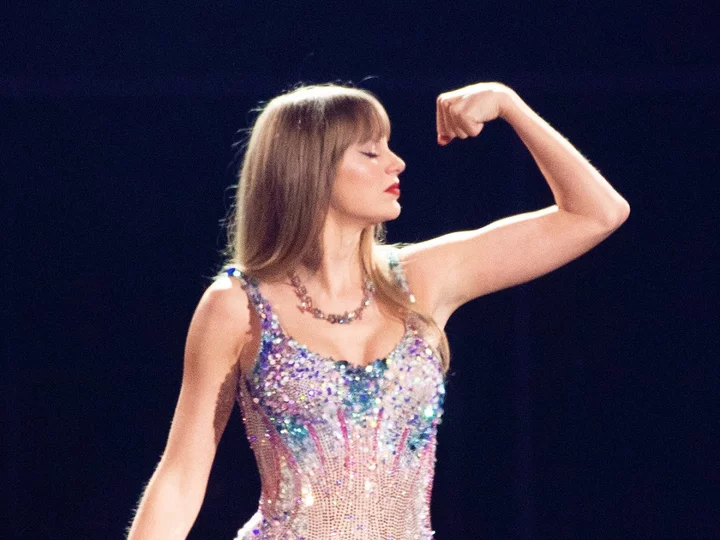
My Taylor Swift exercise class has led me down a luxury fitness rabbit hole
Amid flashing strobe lights at a SoulCycle class in Notting Hill, our instructor MJ stands on a platform, his baseball cap flipped backward and his facial hair trimmed into designer stubble, looking as if he’s straight out of a boy band. “I’ve had a f***ing s*** day and I didn’t want to come to work,” he says, softly, through his head mic. “But I’m so glad I did, as the energy is bringing me to life!” Everyone around me – women between the ages of 25 and 35, all of them dressed in one-shoulder leisurewear – roars in response. “Sit up tall, don’t let anyone make you feel down,” MJ continues. “You’re all legends, don’t let anybody judge you!” I pause for breath after yet another manic burst of energy cycling on the spot. Then we have to pick up dumbbells while atop stationary bikes and do a choreographed workout to a Taylor Swift song. This special Swift-themed class is taking place at 8.30 on a Monday night and in the same venue where First Lady Jill Biden and Rishi Sunak’s wife Akshata Murty attended a spinning class together after King Charles’s coronation in May – reportedly with 10 security guards in tow. I feel slightly out of my depth. I spent two hours looking for my lycra leggings and I’m totally unfit. Apart from walking my dog, I haven’t done any real exercise since 2017, when I had a go at clean eating and did a few weeks of high-intensity training at the gym. But now I’m ready for SoulCycle’s “unique mind-body-soul experience”. This leap back into exercise is partly inspired by Apple TV+’s dark comedy Physical, which is returning for its final season next month. It’s about a housewife played by Rose Byrne who battles her demons and a vicious and self-critical inner voice while finding solace in aerobics. Could it work for me, too? Is exercise the answer to my endlessly spinning mind? Would it serve as an instant catapult into a world of empowerment and success? Everyone in this class knows the words to every Taylor Swift song that booms from the speakers. “Drop everything now/Meet me in the pouring rain”, she sings on “Sparks Fly”. “Kiss me on the sidewalk/Take away the pain.” But all I can think about is the pain I’m currently in. We’re wearing special shoes that click into the pedals of the bike, so it’s not easy to detach oneself. But soon I become grateful for it: if I’m superglued into this class, I can’t give up so easily. As MJ says: “No struggle... no progress”. It doesn’t matter if you can’t move the wheel at the front of the SoulCycle bike, or if you’re peddling down on it like a gazelle; if you’re sweating and panting, you’re part of this love-in. And wow, it feels great. I’m not alone in adoring it, and some of my fellow riders were here even earlier, for “part one” of a class modelled after Swift’s setlist on her current US tour. (Each class costs £26, while a renewable package of four is £86, or eight at £160). It’s a little pocket of joy I knew nothing about while I was sitting at home snacking in front of my laptop and gaining weight. As I leave the SoulCycle studio and wander into the night, I take a deep breath. It feels good to be back in the saddle – even though my legs are like jelly. I have to ask my friend to drive me home because I’m not sure I’ll make it on foot. There are a few reasons I haven’t been hitting the gym, or even doing the occasional relaxed yoga class. Having children on my own has been an intense journey. For years my idea of exercise has been holding a baby or running after two kids in a park with an unruly dog. But when I read a few different headlines lately (“Fit and fabulous at 54: Jennifer Aniston emerges from her new workout class”; “Nicole Kidman, 56, flashes her incredible abs in revealing black dress”), I felt a pang of guilt. These women are older than me but super fit. My daughters, aged five and seven, are both at school now, so there’s no excuse for being so inactive. I had some blood tests done and my cholesterol is creeping up. I’ve been told I need to give up sugar and take up exercise. How can I be a good role model to my kids if all they do is see me eating the chocolate rolls meant for their pack lunches? And where do I even begin with fitness? After the excitement of my Taylor Swift class, the idea of strolling along to my local Virgin Active feels mundane. I ponder whether it’d be easier to stay fit if I was super-rich. I can see myself signing up for four workout sessions rigged up to an electrical current. Because why not? I can’t possibly afford the bespoke, members-only gym Bodyism in London’s Westbourne Grove, whose clients include heiress Tamara Ecclestone. It caters for high-intensity, low-impact training, with top-tier packages costing £23,000 a year. More affordable, though, is their class membership – which costs £1,500 a year for 72 classes and promises to help elongate and tone the body. But it’s also full of the clean-eating squad – I might not fit in. Then there’s London’s BXR, a private, boutique boxing-themed gym that’s spread over two floors. From the street below I can glimpse a massive boxing ring behind enormous glass panels – a manifestation of the idea that celebrities feel they live in a goldfish bowl. It’s also packed with A-listers who get free guest passes while staying at the luxury hotel Chiltern Firehouse that’s located opposite. Membership costs from £2,500 a year and up (by a lot), and the Vogue editor Edward Enniful and fashion designer Julian Macdonald are apparently fans of BXR’s Versaclimbing – a high-intensity, low-impact workout on a Versaclimber. This cardio fitness machine has a 75-degree vertical rail with pedals and handles that mimic the natural motion of climbing. When I hear that the machine burns up to 800 calories in a 45-minute session – well, I’m on the phone to the bookings team in a flash. Unlike treadmill or spin classes, it’s exercise that is full body but low impact – meaning it “minimises unnecessary stress or trauma to your body”. At the state of the art Repose, a wellness clinic in London’s High Street Kensington with members including Made in Chelsea’s Millie Mackintosh, the speciality is “anti-gravity fitness”. It might sound unusual to exercise from a silk hammock suspended from the ceiling for £40 a class – but sessions include pilates, suspension fitness, air bar and both restorative and aerial yoga. Models and celebrities, including Poppy Delevingne, are also queuing up for personal training at London’s E-Pulsive, which costs £85 a session. The electrical muscle stimulation class (EMS) sees you strap yourself into a full-body vest that zaps you with low-frequency electric impulses to manually contract your muscle fibres while you exercise, increasing the intensity of your workout. It seems ideal for people like me who are too busy to exercise but who want superfast results – apparently, a 20-minute EMS workout burns 500 calories and can offer the same results as a 90-minute high-intensity gym class. It sounds like heaven. Then there’s roller-skating at model Liberty Ross’ glamorous Flipper’s Roller Boogie Palace in West London or New York – the original LA Flipper’s in the 1970s was run by Ross’s dad Ian Flipper-Ross, and was so associated with glam fitness that it was dubbed “Studio 54 on wheels”. A one-to-one beginner’s class at the new skate school costs £50, or £35 in a group lesson of up to 12 skaters. Or you can just book in for a general skate with your kids – which kills two birds with one stone as they have fun while you burn calories. A two-hour skate session for adults starts from £15.50 and from £11.50 for children. All of this sounds great – but if I went for a workout schedule of my choice, I can’t see it totalling less than £30,000 a year. Bearing in mind that exercise is addictive and makes you feel good, it might be far more in the long run, too. It’s also a tad out of my price range – I don’t plan on dropping into Equinox on Kensington Roof Gardens or the Bulgari Hotel gym any time soon. Instead, I can see myself signing up for four workout sessions rigged up to an electrical current. Because why not? If money wasn’t an obstacle, I would install a gym and a pilates studio in my own house, with a cryotherapy chamber and a personal trainer on tap. But until then, I plan to start running with the dog, my two kids behind me on their scooters. It’s far cheaper and – unlike the late-night Taylor Swift class – won’t require a babysitter. Read More I keep forgetting my dog’s birthday – could a luxury pet party make it up to him? ‘I’m here anyway, why not?’: My non-surgical facelift has got me thinking about more procedures I’ve never had a platonic relationship with a man – sex can’t help but get in the way Husband fired from family business after wife roleplayed with reborn dolls Montana Brown explains why she chose a home birth as a ‘non-white person’ 8 healthy habits to help you live longer – according to a new study
2023-07-25 13:58
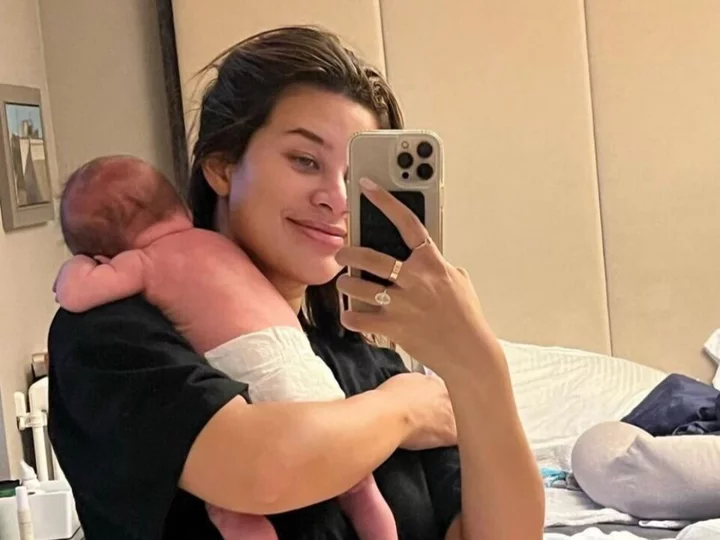
Montana Brown says she chose a home birth because ‘hospital isn’t the safest place for non-white people’
Montana Brown has revealed that she chose to have a home birth when welcoming her son Jude last month because she felt that hospitals are not “the safest place” for non-white people. The former Love Island star, 27, shared a YouTube vlog about her pregnancy and birth plan recently to answer questions from followers about her experience. She opened up about her decision to have a home birth, adding that she hired a doula, a trained professional who supports women through labour and birth, as well as through post-partum. Brown, who is mixed race and has Japanese and Jamaican heritage, said she “can’t wait” for her home birth. She filmed her vlog before giving birth to Jude in June. “I feel like hospital isn’t the safest place to give birth and I know people are gonna be like, ‘What the f***, you’re an idiot’ but I just think it’s personal preference,” she told her followers. “Also, I just think as a non-white person, it’s not the safest place to be in hospital in childbirth. All these things I’ve thought about for a long time. We’re also having a doula, which I’m really excited about.” In the UK, Black women are nearly four times more likely to die in pregnancy and childbirth than white women, according to a report published by MBRRACE-UK (Mothers and Babies: Reducing Risk through Audits and Confidential Enquiries across the UK) in 2022. The study found that there was a slight drop in the maternal mortality rate for Black women between 2018 and 2020. It also found that Asian women are around twice as likely to die in pregnancy and childbirth than white women. In a 2021 response, the government said it was “committed to reducing disparities in health outcomes and experience of care”. Brown, who is engaged to fiancé Mark O’Connor, said she asked for advice on a home birth from The Only Way Is Essex (Towie) star Sam Faiers, who she called the “queen of home birthing”. “It’s just fantastic… She’s helping me feel really set in my decision,” she said. Replying to a fan who asked if she felt afraid of giving birth, Brown said had the “most positive mindset ever”, and would continue to do so even if she had to have a “C-section, an epidural, or wound up in hospital”. The reality star and her fiancé welcomed baby Jude on 23 June. Last week, she opened up about the struggle to get pregnant despite being in her twenties and said she was surprised it took her so long to conceive. Speaking on the Happy Mum Happy Baby podcast, Brown told host Giovanna Fletcher that she thought “something was wrong” with her when she and O’Connor first started trying for a baby. “I thought, ‘We’re young, this is going to be really easy’… For the first four months, we’d used ovulation sticks, and then I’d do a pregnancy test and it’d be negative,” she recalled. After both she and her partner went to check their fertility, they discovered she had “no oestrogen and no testosterone”, which made her realise that people “can be young, fit and healthy, and still really, really struggle to conceive”. Announcing her son’s birth, Brown shared a black-and-white photograph of the newborn being cradled against her chest on Instagram and wrote: “Welcome to the world Jude Isaiah O’Connor. We’re so smitten with you little man.” The couple announced their engagement in April, after O’Connor proposed to her in Bermuda. They first met in 2020. Brown featured in series three of Love Island and was coupled up with Alex Beattie at the end. They broke up shortly after leaving the villa. Read More Ruth Handler: The Barbie inventor who revolutionalised prosthetic breasts and narrowly avoided prison Woman praised for response to airline employee who asked her to swap first class seat with child Fans defend Prince Harry and Meghan Markle amid breakup rumours 8 healthy habits to help you live longer – according to a new study The bowel cancer symptom George Alagiah wished he’d caught earlier George Alagiah: What are the signs of bowel cancer?
2023-07-24 22:47
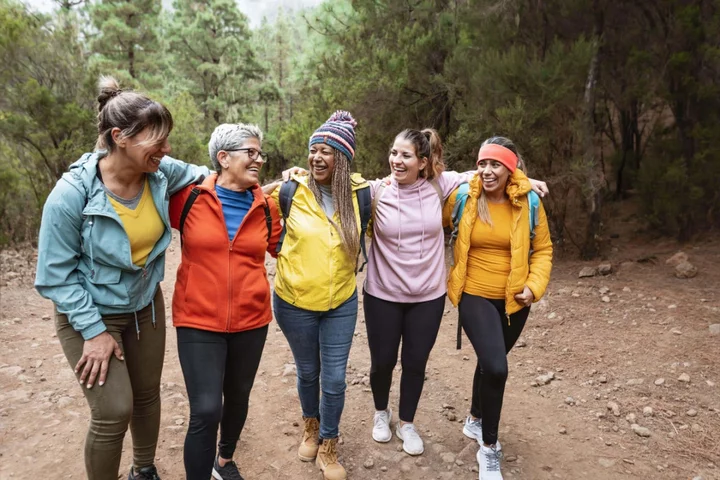
8 healthy habits to help you live longer – according to a new study
Eight habits that could help people live more than 20 years longer have been identified by researchers. While it’s long been known that certain lifestyle factors can influence lifespan, the American study isolated the eight factors that have the biggest impact – being physically active, being free from opioid addiction, not smoking, managing stress, having a good diet, not regularly binge drinking, having good sleep hygiene, and having positive social relationships. The research was presented at Nutrition 2023, the annual meeting of the American Society for Nutrition, and used data from 719,147 people enrolled in the Veterans Affairs Million Veteran Program. It found low physical activity, opioid use and smoking were associated with around a 30-45% higher risk of death, while stress, binge drinking, poor diet, and poor sleep hygiene were each associated with around a 20% increase, and lack of positive social relationships was linked with a 5% increased risk of dying. Men who had all eight habits at age 40 were predicted to live an average 24 years longer than men with none of the habits, according to the findings, and women with all eight habits in middle age were predicted to live an extra 21 years, compared with women with none of the habits. Xuan-Mai Nguyen, health science specialist at the Department of Veterans Affairs, said: “We were really surprised by just how much could be gained with the adoption of one, two, three, or all eight lifestyle factors. Our research findings suggest that adopting a healthy lifestyle is important for both public health and personal wellness. The earlier the better, but even if you only make a small change in your 40s, 50s, or 60s, it still is beneficial.” The researchers say the findings highlight how lifestyle factors contribute to chronic diseases such as type 2 diabetes and heart disease, which are associated with premature disability and death. How to embrace the eight healthy habits Inspired to give your own lifestyle a boost? “If making these small but mighty adjustments could help you to live for an extra 20 years, maybe it’s time to make those changes,” says life and wellbeing coach, Natalie Trice. She shares the following insights and tips… 1. Do more exerciseRegular exercise can help prevent a wide range of major diseases – plus it’s great for keeping stress levels in check. “Going for a walk, having a swim, running with friends, even just a good old dance-off in the kitchen can get your heartbeat up and those feel-good endorphins pumping – so get your trainers on and start moving,” says Trice. 2. Manage stressTrice suggests adopting simple stress-busting practices such as mindfulness meditation, and enjoying hobbies and sports. “These can profoundly impact overall wellbeing, as you bring your stress levels down,” she says. “This isn’t about pretending everything’s great, but rather looking at easy habits you can adopt that will take down the stress, which can lead to anxiety and burnout.” 3. Don’t smoke Quitting smoking is an essential step in improving health and potentially adding years to your life. Trice points out that while some people may think reaching for a cigarette takes the edge off their stress, there are healthier ways to cope. “Maybe going running or taking up yoga could be the release and focus you need, and one that will help you live longer, smell fresher and feel better,” she suggests. “Also, with the cost of cigarettes going up all the time, giving up will free up cash for the things in life that really need to be paid for.”If you are struggling to quit smoking, talk to your GP about options available to help. 4. Don’t binge drink“By cutting down on booze, you’re doing your body and brain a massive favour,” says Trice. “Drinking every night will impact your body and could affect your sleep and work performance. Enjoy life, but if you want to enjoy it for longer, then keep tabs on your drinking.” Official guidelines suggest drinking no more than 14 units of alcohol a week (equivalent to six medium glasses of wine of six pints of beer), spread across at least three days. 5. Eat healthily Generally speaking, a balanced diet that’s rich in fibre, whole grains, fruit and veg and lean protein, with heavily processed and sugary foods kept to a minimum, is linked with better health. “We all know about eating five-a-day but doing this can be tough if you’re busy with family and work. If you can start to do this, you’ll feel better,” says Trice. “Focus on eating regularly and thinking about what you put in your body, so that it works for you, not against you.” 6. Don’t take drugsRecreational drugs can harm health in a number of ways. Trice suggests those affected start by speaking to a trusted friend or their GP, and “look at the support which could not only extend your life, but save it”. 7. Try to get good sleep Trice says: “It’s vital that we look at getting a decent night’s sleep, as this can help you feel so much better. Making sure you have a sleep routine in place can be helpful and can be as easy as having no screens in the bedroom, having a bath or shower before you hit the sack, as well as making sure the temperature is right and you have curtains to keep the light out in the mornings.” 8. Nurture positive social relationshipsTrice observes: “If you’re able to nurture a supportive network of friends, colleagues and family, this can lead to improved mental and emotional wellbeing and a longer life.” Lacking social connections? Look at local volunteering opportunities and community walks and groups. Making friends can take time, but even finding ways to regularly spend time and interact with others can help. Read More Charity boss speaks out over ‘traumatic’ encounter with royal aide Ukraine war’s heaviest fight rages in east - follow live George Alagiah: What are the signs of bowel cancer? Carol Vorderman says she no longer sunbathes after health scare Carol Vorderman: Why my skin cancer scare means I no longer sunbathe
2023-07-24 21:51
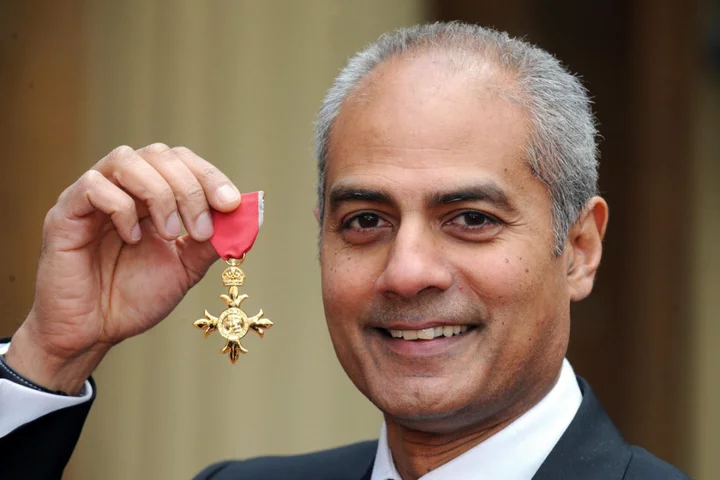
George Alagiah: What are the signs of bowel cancer?
BBC newsreader George Alagiah has died at 67 after being diagnosed with bowel cancer. Bowel cancer is the fourth most common cancer in the UK and leads to around 16,800 deaths every year. More than nine out of 10 cases of bowel cancer develop in older adults over the age of 50, and nearly six in 10 are in people aged 70 or older. Alagiah was first diagnosed with stage four (advanced) bowel cancer in 2014. By the age of 66, it had spread to his lungs, liver, spine and lymph nodes. The three main symptoms of bowel cancer are having persistent blood in the stools, an ongoing change in bowel habit (such as needing to go more often or suffering the runs) and persistent lower abdominal pain, bloating or discomfort. A loss of appetite may also occur, or somebody may suffer significant, unintentional weight loss. Several things are known to increase the risk of bowel cancer, though they cannot explain every case. These include a diet high in red or processed meats and low in fibre, being overweight or obese, not taking enough exercise and drinking too much alcohol. Being a smoker and having a family history of the disease can also push up the risk. Some people also have an increased risk of bowel cancer because they have another long-term condition, such as extensive ulcerative colitis or Crohn’s disease. Bowel cancer screening is currently widely offered to people aged 60 to 74 who are sent a home stool kit every two years. Those aged 75 and over can ask for a kit every two years by phoning the free bowel cancer screening helpline on 0800 707 60 60. Bowel cancer can be very difficult to treat in its later stages. But in the early stages, tumours can often be removed through surgery. The main treatments for bowel cancer include chemotherapy, radiotherapy and targeted drugs, which depend on the genetic make-up of the tumour. One in 15 men and one in 18 women will be diagnosed with bowel cancer during their lifetime. Expert predictions are that 53,646 cases of bowel cancer (29,356 in men and 24,290 in women) will be diagnosed in the UK in 2035. Read More Charity boss speaks out over ‘traumatic’ encounter with royal aide Ukraine war’s heaviest fight rages in east - follow live Carol Vorderman says she no longer sunbathes after health scare Carol Vorderman: Why my skin cancer scare means I no longer sunbathe This is how often you should actually change your razor
2023-07-24 20:27
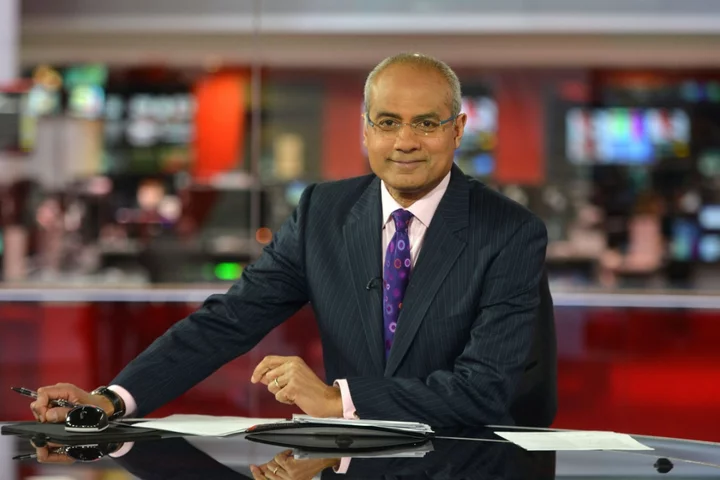
The bowel cancer symptom George Alagiah wished he’d caught earlier
BBC presenter George Alagiah has died at the age of 67, after nearly a decade of living with bowel cancer. The newsreader was first diagnosed in 2014. He underwent several rounds of treatment after the cancer returned and spread over the last few years. In a statement, his agent Mary Greenham said: “George fought until the bitter end but sadly that battle ended earlier today. George was deeply loved by everybody who knew him, whether it was a friend, a colleague or a member of the public. “He simply was a wonderful human being. My thoughts are with Fran, the boys and his wider family.” Earlier this year, Alagiah opened up about a symptom he wished he had caught earlier. He was taking part in an NHS campaign to encourage the wider public to take up its bowel cancer screening program. He urged people who have received a free test kit from the health service “not to ignore it” because it “could save your life”. “Had I been screened, I could have been picked up. I would have been screened at least three times and possibly four by the time I was 58 and this would have been caught at the stage of a little polyp: snip, snip,” he said at the time. Alagiah received his diagnosis after complaining of blood in his stools. He underwent 17 rounds of chemotherapy and five operations to treat the disease, which eventually spread to his liver and lymph nodes. He supported a campaign by Bowel Cancer UK and Beating Bowel Cancer to make cancer screening available to everyone in England from the age of 50. Currently, screening is available to everyone aged 60 to 74, but the NHS is expanding to include everyone aged 50 to 59 years old. Around 42,000 people are diagnosed with bowel cancer every year in the UK, with 90 per cent of diagnoses made in people over the age of 50. It the fourth most common cancer and the second biggest cancer killer, leading to around 16,800 deaths every year. The three main symptoms of bowel cancer include having persistent blood in the stools; an ondoing change in bowel habits, such as needing to go more often or having diarrhoea; and persistent lower abdominal pain, bloating or discomfort. Some patients may also experience a loss of appetite, or significant, unintentional weight loss. According to Cancer Research UK, another potential symptom is tenesmus, which is the feeling of having to defecate without having stools, or experiencing pain upon defecation. Studies have found that several factors could potentially increase the risk of bowel cancer, although they cannot explain every case. These include a diet high in red or processed meats and low in fibre; being overweight or obese; not exercising often enough; and drinking too much alcohol. Smoking and having a family history of the disease can also increase the risk. Some people with long-term conditions like extensive ulcerative colitis or Crohn’s disease may also have an increased risk of bowel cancer. Bowel cancer can be treated with surgery, which may be paired with chemotherapy, radiotherapy or biological treatments. Catching the cancer at an early stage greatly improves chances of survival. However, the NHS states that if a cancerous tumour cannot be removed completely through surgery, then a cure may not be possible. For more information about treatment for bowel cancer, visit the NHS here and Cancer Research UK here. To speak to a Cancer Research UK nurse, you can call 0808 800 4040. The helpline is free and open from Monday to Friday, from 9am until 5pm. Additional reporting by PA Read More George Alagiah death: BBC newsreader dies aged 67 after bowel cancer diagnosis ‘One of the best and bravest’: George Alagiah obituary as long-serving BBC newsreader passes away ‘It’s not the doom and gloom you might think’: Jonnie Irwin details experience with palliative hospice care
2023-07-24 20:22
